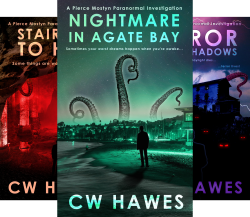November marks my four year anniversary as an independent author-publisher. And they’ve been four super wonderful years. I’m very much looking forward to year 5.
I’ve published 28 books, with number 29 coming out by year’s end. If I’d gone the traditional publishing route, I might still be looking for an agent. Screw traditional publishing. It’s the indie life for me!
Now I’d love to write that I just bought that Rolls Royce I’ve always dreamed of owning with my royalties from this year. Unfortunately, my desire has greatly outpaced my earnings.
Am I disappointed? I’d be a liar if I said I wasn’t. But I’m only disappointed a teeny-weeny bit. Why? Because I have 28 books, soon to be 29, available for people to enjoy. I’m making some money. And people, at least some people, like my stories. Plus I’m doing what I always wanted to do and loving it. What more can one ask for?
I’ve learned a lot these past four years and I’m hoping the next four years will at least allow me to buy a Ford Focus. 🙂
While all that sounds optimistic, fundamentally I’m a pragmatist. In the end, what works is what counts. I’ve read dozens of books, articles, and blogposts by writers as to what works and what doesn’t. I don’t focus on the fads or the gimmicks or the golden parachutes. I look at what truly works.
For indie writers, there is one refrain that has been constantly sounded by virtually all the successful writers — and it’s simple: write fast, write in series, publish often, and build a mailing list. Those 4 things are what virtually all successful indie authors have done and are doing. Sure there are exceptions. But they are the exceptions.
If you are an indie writer and aren’t writing fast, aren’t writing one or more series, if you aren’t publishing often, and you aren’t building a mailing list — then you will almost certainly fail. It doesn’t matter how good your writing is. Indie readers want lots of books, because they tend to be voracious readers, and they want them in series. It’s that simple.
Self-publishing today is easy and gaining in respectability. And I’m glad. For anyone who wants to write and publish a book, now that person can. There are no longer any gatekeepers stopping people. We can tell the world whatever is on our hearts and minds. We can tell the world all the stories we want to. And that is a good thing.
Marketing, however, remains the bugaboo — for both indies and the big corporate publishers.
Finding one’s audience is the real challenge for any artist or entertainer who hopes to make a living producing art. And fiction writers are both artist and entertainer. And this is where a mailing list can help the writer. Because a mailing list is really a list of those who like your work, or are at least interested. You won’t get that from Amazon or Apple or Barnes and Noble. They keep the email addresses to themselves.
Marketing in some form is essential to getting our name and our work out in front of potential readers and buyers. A mailing list is simply a voluntarily captive audience, as it were. There are other forms of marketing, and they should be used. But you writers, don’t neglect the mailing list.
For the curious, I’ve earned the following royalties for my efforts:
2014 (2 months) $113.48
2015 $233.87
2016 $231.04
2017 $212.53
2018 (through October) $280.53
Those earnings came from the sale of 513 books, 35 borrows, and 23,202 page reads.
As you can see, I’m no mega-star. No bestseller. No award winner. But I’m not ashamed of those numbers. Thus far I’ve achieved all that with but 4 weeks of paid advertising done at the beginning of this year. The bulk of my sales and page reads came from free advertising venues.
My fan base is tiny. And I do mean tiny. But it’s a start and I continue to be excited and encouraged with every sale and page read.
For the coming year I’m going to focus on the indie formula for success. I plan on writing lots, at least 1,000 finished words a day and hopefully I can push that to 2,000 or 2,500 on a consistent basis.
The old pulp formula, which is now the indie formula, is alive and well. Publishing 3 books in 3 months proved it to me. It’s what has given me my best year ever. I had sustained sales for 4 months after the third book was published. If I’d had more ready to go… Who knows, I might have been a bestseller.
I’m also going to work on building my mailing list. I’m a believer in the 1,000 fan theory. Which is this: all an artist needs is 1,000 super fans (those folks who will buy whatever you put out — books, recordings, cups, sweatshirts, etc.) to make a living from his art.
To find those fans, I’ll be using such avenues as Prolific Works and BookFunnel: giving away a free copy of a story in exchange for an email. The process is slow and tedious. Many unsubscribe right away. Many drop off in the first few months, and many never open an email. I’ll cull from the list those who are unresponsive. Leaving the folks who are hopefully interested in my books.
I love writing. I love being retired so I have the freedom to write all day if I choose. I wouldn’t have it any other way. Life is grand.
Comments are always welcome. And until next time, happy reading!
Share This!